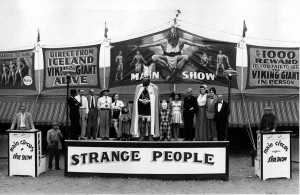Welcome to the Wakefield Doctrine (the theory of clarks, scotts and rogers)
There’s an old saying, “Fridays are the Monday-mornings of living a full and satisfying life.”
Why the love-hate relationship between clarks and the most looked-forward-to day of the workweek?
Consider that your homework.
New Readers! While our subscriptioneers get busy organizing their notes, and make sure they have enough yellow-highlights, clear-plastic rulers, No.2 pencils and, to be ready to take the assignment-completion-process up to the next level, a supply of three-by-five index cards; (Of course, there’s a cork board and little colored pins!), lets go for a quick tour of the Wakefield Doctrine.
The Wakefield Doctrine starts out with three different (yet intricately interrelated) predominant worldviews. ‘Predominant worldview’ is the preferred term denoting personal reality writ large. While scraping the guardrails in terms of a distinction between what an individual’s subjective reality is and the proposition that the whole, yeah, everything, world that is considered ‘reality’, knowing the differences between the three predominant worldviews of the Wakefield Doctrine are essential to deriving the benefits of this unique, fun and quite useful perspective on the world around us and the people who make it up.*
We’re born with the possibility of having one, (of three), predominant worldviews being established (the the ‘other two’ becoming secondary), and thereby being our ‘reality’. It (the predominant worldview) shapes, influences and serves as the context in which we develop the tools and strategies that shape our subsequent relationship with life …and such.
The three are:
- the reality of the Outsider(clarks)
- the world of the Predator(scotts)
- the life of the Herd Member(rogers)
If discussed in terms of personality types, the above are the three personality types of the Wakefield Doctrine. For the Doctrine, personality type is not an assignment or a categorization based on a how many of a number of predetermined characteristics, traits or inclinations an individual demonstrates. Personality type is, for the Wakefield Doctrine, a description of how a person relates themselves to the world around them.
Learn the characteristics of the three, ask the question: “How is this person/how am I relating themselves/myself to the world around?”
The cool and fun part is the accuracy of the descriptions of the three ways to relate to the world.
There’s a bunch more to learn, but…. today is Friday. So have fun on the weekend.
* total, long-running, and favorite play-on-words here at the Doctrine… (and a totally obtuse reference to the ideas on reality as Carlos Castaneda so elegantly presented in his writings, i.e. reality is perception and the players contribute to the script, to mix as many metaphors and rhetorical devices as possible… ya know?)










